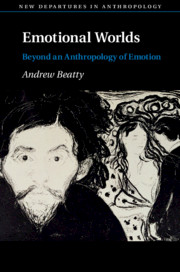Book contents
Nine - Concepts, Words, Feelings
from Part III - Perspectives
Published online by Cambridge University Press: 14 January 2019
Summary
- Type
- Chapter
- Information
- Emotional WorldsBeyond an Anthropology of Emotion, pp. 228 - 259Publisher: Cambridge University PressPrint publication year: 2019



